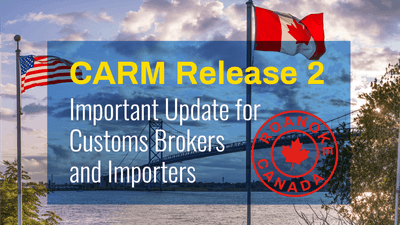March 20, 2014 | Customs Bonds
eBond in ACE: Why is it Important to the Customs Broker Community?

Background
The eBond concept has been discussed by CBP, the surety industry and the customs broker community since the mid 1980’s. A 2011 DHS audit report essentially mandated that CBP centralize STB filing. This is achievable only via an eBond system. After decades of discussion, many industry members may be skeptical that eBond will happen. However, CBP’s current level of urgency means that the time has come for the industry to embrace eBond. There will be no paper alternative for bond filing once CBP mandates ACE use for entries in November 2015.
Why Is This Important?
The development of eBond began in ACE Increment 5 on February 5, 2014. The filing of eSTBs will become mandatory for all ACE entries on January 3, 2015. ACE is scheduled to become the system of record for all entry filing in November 2015. It is vital that you work with your software vendor to ensure readiness for ACE entry filing by the deadline.
The eBond Process
In the eBond environment, the submission of all bond data to CBP will be via the surety. The surety industry has tentatively identified a standard set of STB data elements to approve a bond. Prior to entry filing, the customs broker sends STB data to the surety, who then sends the approved bond to CBP. Upon acceptance, CBP sends official notification to the surety and a courtesy notification to the designated Secondary Notify Party (broker). The broker then transmits the entry in ACE. Release follows the matching (validation) of the bond/entry data in ACE.
For continuous bonds, the customs broker files bond data with CBP via our existing bond issuing platform, FastBond™. Instead of printing a bond, you simply enter the data into FastBond™, which in turn handles the transmission to CBP. Continuous bond filing and CBP approval should become virtually immediate.
Issuing Authority
Customs brokers have issuing authority enabling them to file the vast majority of bonds required by their importer clients. We realize that bonds are a very important revenue stream to brokers. The authority you have today will be the authority you will have in the electronic world. We will not permit eBond to change that.
Benefits of eBond for All Parties
Bond issuance capability will be 24/7 and an electronic transmission of STB data will expedite the release of cargo. Also, ACE eSTB entries are eligible for RLF. Continuous bonds will be filed and accepted almost immediately. For CBP, eBond facilitates full customs bond centralization while furnishing the added benefit of explicit acknowledgment of liability by surety. Surety processing becomes more orderly and efficient. It reinforces relationships for all parties.
Moving Forward
CBP is serious and committed to meeting the deadline. In November 2015, all entries must be filed in ACE. The deadline is fast approaching, therefore, it is imperative to plan and work with your software vendor to ensure you will be ready when ACS is decommissioned.
Contact us at infospot@roanokegroup.com to learn more. We will be providing periodic updates as CBP moves further along with eBond development in the coming months












